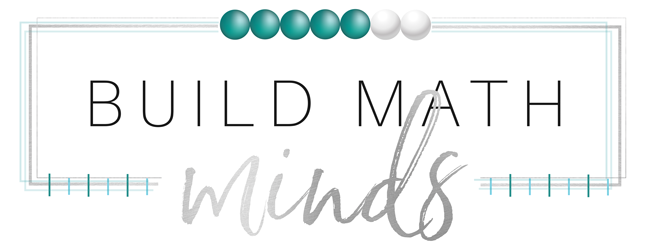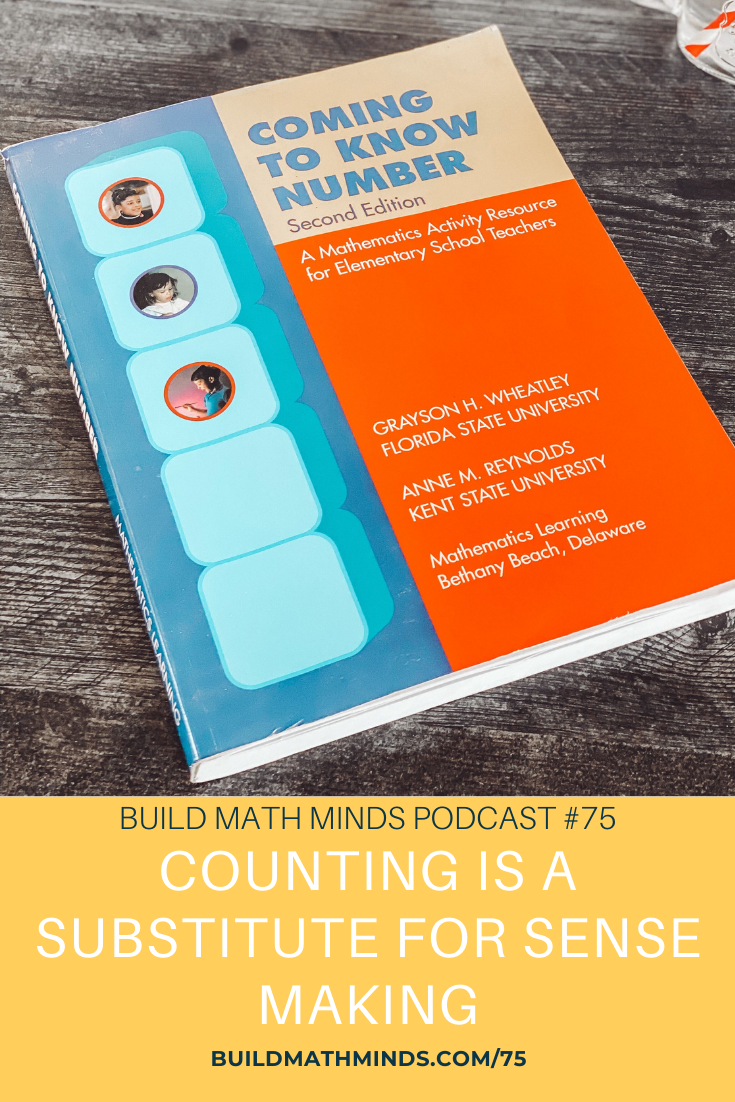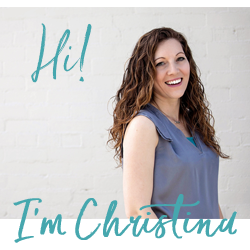Resources mentioned in this episode:
Coming to Know Number: A Mathematics Activity Resource for Elementary School Teachers by Wheatley & Reynolds (this book is not being published anymore but you can get the ebook via Apple and you can find it through some book resellers)
Watch the Building Math Fluency Video Series
Welcome fellow Recovering Traditionalists to Episode 75. Today we are taking a look at how Counting is a Substitute for Sense Making.
“To encourage counting can actually interfere with the construction of number in that it is a rote process that may be devoid of any mathematical meaning.”
When I read that sentence on page 15 of the book Coming to Know Number by Wheatley & Reynolds, my first instinct was to slam the book shut. My shoulders immediately clenched up and I thought ‘How in the world can they say that!?!? Counting and our number system is the basis for all mathematical ideas.’
Luckily my eyes move faster than my brain sometimes and I was already seeing the words that were coming next even though my mind was still back thinking about how wrong the authors were. As my eyes kept reading and my brain slowly followed, my shoulders started to relax because what came next made perfect sense.
“This is not to say that counting cannot be meaningful but that for many students it becomes a substitute for sense making.
We are suggesting that a collections approach to numbers can be more effective than attempting to build mathematics on counting. Students will always count and it is a useful procedure. However, students who rely heavily on counting in computing and problem solving may not be constructing essential mathematical relationships necessary for success in more demanding mathematics tasks.”
We’ve all seen it. Kids know counting works, so they use it to help them get correct answers. If you’ve ever spent time trying to help kids get past counting as a strategy to solve problems you’ve seen how entrenched they are into counting.
But counting is important, it is a foundation that kids need. However, we try to jump straight from ‘counting’ into ‘strategies’, but if kids have not worked in ‘collections’ then they won’t understand those strategies.
Working with collections is about helping kids see groupings. Now it’s a lot more complex than that, but that’s the general idea. You need to move kids away from seeing quantities as one-by-one-by-one and into helping them see quantities as groups and then looking at the relationships between those.
If you’d like to learn more about how to help kiddos do that, then go get the book Coming to Know Number. The book is actually out of print but you can find it on reseller websites and I’m linking to where you can get the ebook on an Apple device. Again come over to buildmathminds.com/75 for the link and on that page I’m also going to link to a Building Math Fluency Video Series that I’m putting out that will help give you information about how to help kids get past the counting and into collections and relationships. This free series walks you through what math fluency entails (it’s not counting and it’s not memorization), activities you can do to build it for our students, videos of students with math fluency so you can see it in action, and a video that will be released later this week is all about the importance of visuals and in that video you’ll see where this idea of collections pops up again. I hope to see you over at the video series. I’ve also got a Building Math Fluency Starter Kit that accompanies this series that you can get.
Stay safe and stay healthy.
Subscribe and Review in iTunes
Hey, are you subscribed to the Build Math Minds Podcast, yet? If you’re not, make sure to do that today because I don’t want you to miss any episodes! Click here to subscribe to the podcast in iTunes.
While you’re there, don’t forget to leave a review on iTunes too. I would love to know your thoughts and how we can make sure that we give you content that you will really enjoy.
To leave a review, head over to iTunes and click on “Ratings and Reviews” and “Write a Review.” I can’t wait to hear your thoughts about the podcast.




